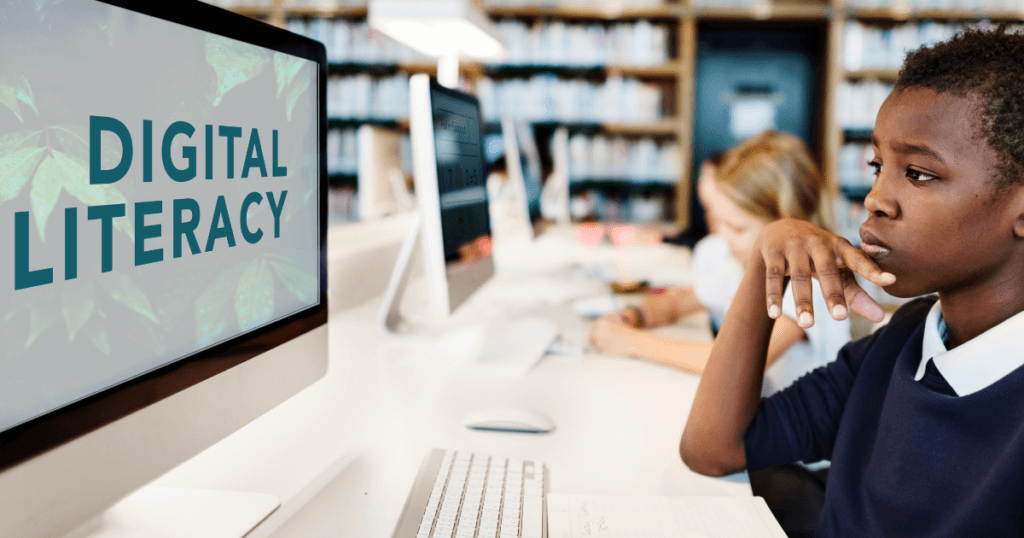Digital Literacy in Medical Education has become one of the most essential skills for students pursuing a career in healthcare. As the UAE continues to position itself as a global hub for medical innovation and technological advancement, understanding and mastering digital tools is no longer optional it is a necessity. Medical students are expected not only to have a strong foundation in medical science but also to be proficient in digital technology which plays an increasingly important role in patient care, research, and communication.
Healthcare is evolving rapidly and traditional medical training alone is not enough to keep up with these changes. Digital Literacy in Medical Education equips students with the ability to navigate the modern medical landscape effectively. It enables them to access and interpret medical data, use advanced healthcare technologies, and communicate accurately with patients and professionals. In a country like the UAE which has invested heavily in healthcare innovation, digital literacy is a key driver of both academic and professional success.
The Importance of Digital Literacy in Medical Education
Navigating the Information Age
In today’s world patients have unprecedented access to medical information online. This shift has changed the dynamics of healthcare making it crucial for medical professionals to be able to verify and interpret information accurately. Medical students with strong digital literacy skills are better equipped to guide patients, clarify misconceptions, and provide accurate medical advice.

Digital Literacy in Medical Education also helps students critically evaluate research and data from online sources. With thousands of medical articles, journals, and research papers published every year, the ability to discern credible information from misleading content is essential. This skill not only supports academic excellence but also ensures that future doctors make informed decisions in clinical settings.
Enhancing Patient Care
Digital literacy directly impacts patient care. Medical students proficient in digital tools can use electronic health records, telemedicine platforms, diagnostic apps, and other technologies to improve the quality of care. These tools allow for more precise monitoring of patient conditions, efficient communication with other healthcare professionals, and quicker access to relevant medical history.

For instance, telemedicine has become a vital part of modern healthcare, especially after the global pandemic. Students who are comfortable with digital platforms can provide remote consultations, monitor patient progress, and manage health information securely. Digital Literacy in Medical Education ensures that medical professionals are prepared to handle these tools effectively ultimately leading to better patient outcomes.
Keeping Up with Medical Advancements
The field of medicine is constantly evolving with new research, treatments, and technologies emerging every day. Digital Literacy in Medical Education gives students access to a wealth of information from the latest clinical guidelines to innovative research studies. This ability to stay updated ensures that future doctors remain at the forefront of medical knowledge and can offer the best possible care to their patients.
By integrating digital literacy into their daily learning, students can track trends in their specialization, participate in online medical communities, and engage with global research. This continuous learning mindset is critical for sustaining excellence in healthcare.

Integrating Digital Literacy into Medical Curricula
Curriculum Development
Medical schools in the UAE are increasingly incorporating Digital Literacy in Medical Education into their curricula. Courses now include training on using medical software, assessing online resources, and understanding the ethical and legal implications of digital health technology. These additions help students become proficient in both technical skills and critical thinking making them more adaptable in their careers.
A well-designed curriculum encourages students to practice using digital tools, analyze information, and apply it in real-world medical scenarios. From managing patient data to conducting research and using simulation software, students gain hands-on experience that prepares them for the demands of modern healthcare.
Faculty Training
Educators play a critical role in fostering Digital Literacy in Medical Education among students. Continuous professional development ensures that faculty members themselves are proficient with new technologies and can effectively teach these skills. Well-trained instructors can model best practices, introduce innovative teaching methods, and mentor students in applying digital tools in clinical practice.
By supporting faculty development, medical schools create an environment where both students and teachers are confident in using digital resources which ultimately strengthens the quality of education.
Collaborations and Partnerships
Partnerships with technology companies and healthcare institutions provide students with practical exposure to digital tools. These collaborations allow students to work with real-world healthcare technologies such as AI diagnostic software, telehealth platforms, and data analytics tools.
Hands-on experience in these settings helps bridge the gap between theoretical knowledge and practical application. Students gain a better understanding of how technology can improve patient care, streamline medical processes, and support decision-making in complex healthcare environments.
Benefits of Digital Literacy for Medical Students
Critical Thinking and Analytical Skills
Digital Literacy in Medical Education fosters critical thinking. Students learn to evaluate online information, compare sources, and identify reliable data. These skills are essential for medical decision-making, research, and patient care.
By analyzing digital information critically, students develop the ability to question assumptions, test hypotheses, and make evidence-based decisions. This analytical mindset strengthens their overall competence and prepares them for complex medical challenges.
Improved Communication Skills
Proficiency in digital tools enhances communication with patients, colleagues, and the broader medical community. Digital Literacy in Medical Education allows students to use secure messaging, teleconferencing, and patient management systems effectively.
Clear communication through digital channels ensures that medical advice is accurate and accessible. It also facilitates collaboration with multidisciplinary teams contributing to better patient outcomes and smoother clinical operations.
Career Advancement
Employers increasingly value candidates with strong digital literacy skills. In the UAE, medical institutions prioritize candidates who can adapt to digital healthcare systems and leverage technology to improve patient care.
Digital Literacy in Medical Education opens doors to diverse career opportunities including research, telemedicine, healthcare administration, and medical technology development. It also provides a competitive advantage for students seeking international education or employment opportunities.
Challenges in Promoting Digital Literacy
Access to Technology
Not all students may have equal access to digital tools and resources. Providing adequate access is crucial for ensuring that every student can develop essential digital skills.
Institutions can address this challenge by offering shared resources, digital libraries, and partnerships with technology providers. Ensuring equal access helps create a level playing field and supports inclusive learning environments.

Resistance to Change
Some students and educators may initially resist the adoption of digital tools. Concerns about the complexity of technology or the perceived disruption to traditional learning methods can hinder progress.
Addressing these concerns through training, support, and awareness campaigns can help overcome resistance. Demonstrating the practical benefits of Digital Literacy in Medical Education encourages adoption.
Rapid Technological Advancements
The fast pace of technological change can make it challenging to keep curricula up to date. New software, platforms, and tools are introduced frequently requiring ongoing updates to teaching materials and methodologies.
Regular curriculum reviews, faculty training, and integration of flexible learning platforms help institutions keep up with these advancements. Students also benefit from developing adaptability and a continuous learning mindset.
The Future of Digital Literacy in Medical Education
Digital Literacy in Medical Education is not a temporary trend it is the foundation of future healthcare practice. As the UAE continues to invest in healthcare technology, the importance of digital literacy will only increase.
Medical schools that prioritize digital literacy prepare students to handle emerging technologies such as artificial intelligence in diagnostics, robotic surgery, and telehealth systems. These skills ensure that graduates are ready to navigate the complexities of modern medicine and provide high-quality care in a digital world.
In addition, digital literacy fosters innovation and research. Students familiar with digital tools can contribute to technological development, data analysis, and medical research supporting the UAE’s vision of becoming a leader in healthcare innovation.
Conclusion
Digital Literacy in Medical Education is an essential competency for medical students in the UAE. It equips students with the skills to access and evaluate medical information, use healthcare technologies, communicate effectively, and advance in their careers. By integrating digital literacy into medical curricula, institutions enhance academic outcomes and prepare students for the realities of modern healthcare.
The UAE’s commitment to technological innovation and high-quality healthcare underscores the importance of digital literacy. Students who embrace this skill set are better positioned to provide excellent patient care, adapt to changing medical landscapes, and contribute to the country’s vision of a digitally advanced healthcare system.
Investing in digital literacy today ensures that tomorrow’s medical professionals are competent, confident, and ready to meet the challenges of modern medicine.
Do follow UAE Stories on Instagram
Read Next – Dubai Cares Taste of Giving: Dining Out Helps Feed Children












